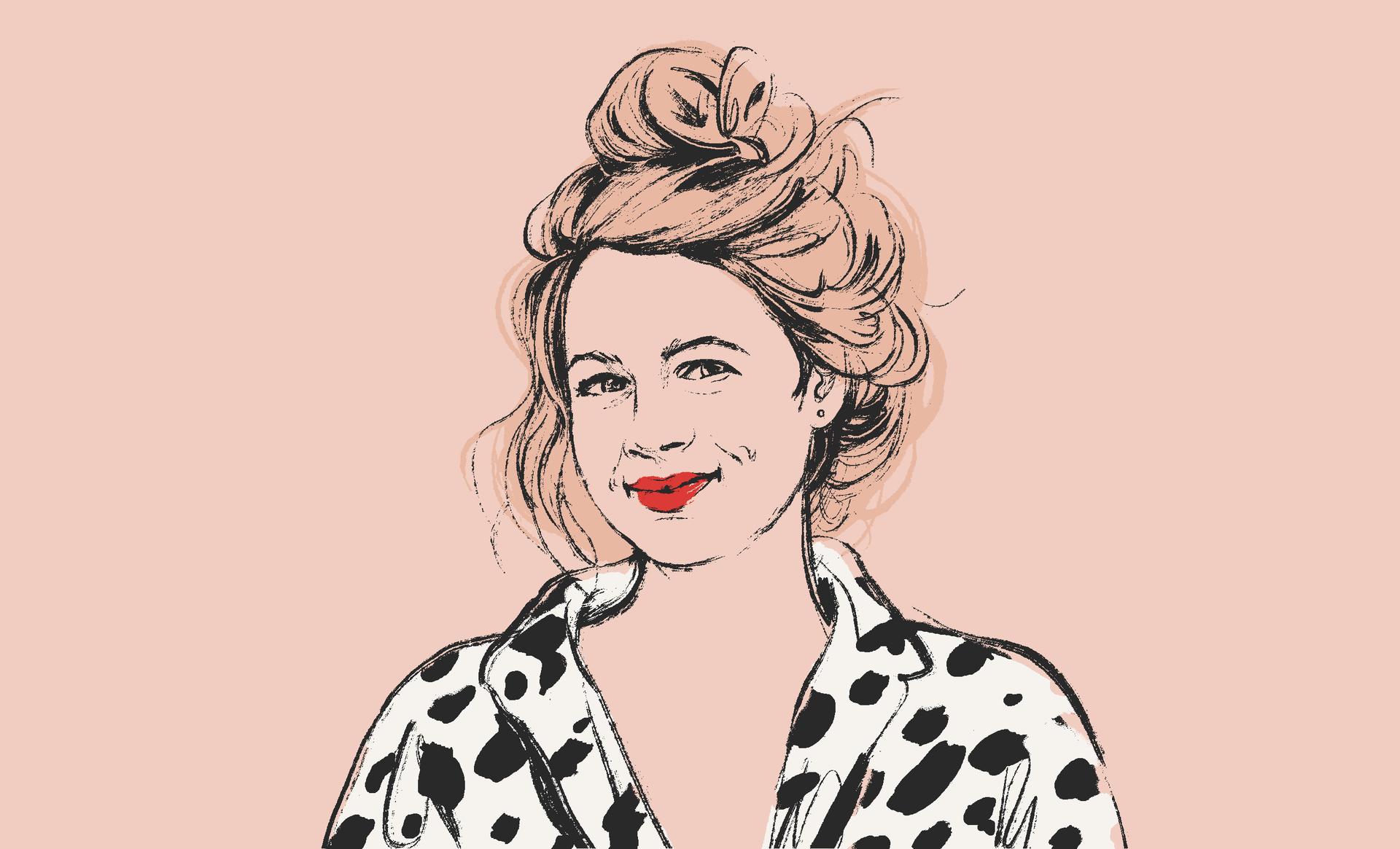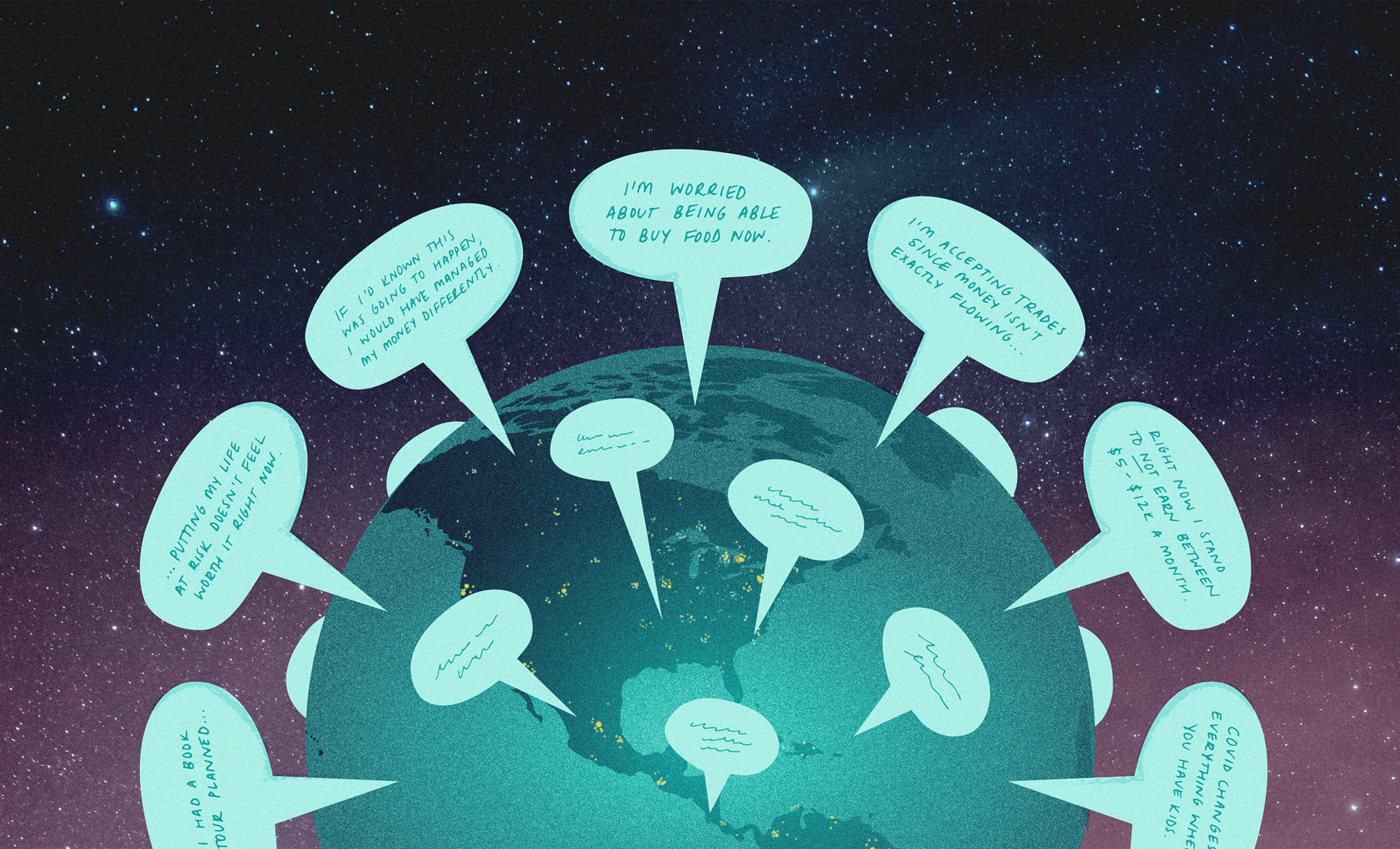
Money Diaries
Broad City’s Abbi Jacobson is Done with the Potatoes
The comedian and author sits down with Wealthsimple to talk about how hard it is to shed the cheap-potatoes-for-dinner mentality.
Wealthsimple makes powerful financial tools to help you grow and manage your money. Learn more
Wealthsimple is a whole new kind of investing service. This is the latest installment of our recurring series “Money Diaries,” where we ask interesting people to open up about the role money has played in their lives.
These days, I make more money than I once did. For the most part, I’m careful to save money, because I get a little nervous that the success I’ve been finding won’t just keep going. But I also work hard all the time to ensure it won’t all go away. The next thing is always in the works. And lately, because I work so much, I’ve been feeling a bit like a workaholic.
I was an entrepreneurial kid. When I was eight years old, I hatched the idea for my first business. My mom sold her own pottery at local craft shows; it seemed like a wasted opportunity for me to be just sitting around all day, without something to sell myself. In my elementary school, the school office sold pencils emblazoned with various NFL team logos, and I’d noticed they seemed to do brisk business. So I had the idea to buy NFL pencils in bulk and sell them at my mom’s pottery booth at the craft shows we went to.

Sign up for our weekly non-boring newsletter about money, markets, and more.
By providing your email, you are consenting to receive communications from Wealthsimple Media Inc. Visit our Privacy Policy for more info, or contact us at privacy@wealthsimple.com or 80 Spadina Ave., Toronto, ON.
The business was a smash hit right out of the gate. My cost on the pencils was maybe a nickel each, and I sold them for a quarter. That’s like a 500 percent markup. And the best thing was that I had no overhead costs. At the time, I imagined that I was filling some unexplored niche. I made a few bucks a day and was very pleased with myself. But mostly it was that people saw some little kid at a craft show earnestly selling pencils, and they were like, “What the hell, I can spare a quarter to make this little kid happy.” The same reasoning props up the nation’s lemonade stands, a recession-proof industry. Supply and demand can be overshadowed by little-kid cuteness. It’s still probably the Jew-iest thing I’ve ever done.
It was a thrifty, fearful, existence. I bought big sacks of potatoes.
How did I become so motivated? Well, I remember my dad created this elaborate program to incentivize my older brother and me to do chores. Instead of a set weekly allowance, we would get a varying amount of points depending on the type of chore we did. Each task—raking leaves, shoveling snow, vacuuming, taking the dogs for a walk—had its own point value. Each point was worth around fifty cents, and we’d fill out these charts to indicate which chores we’d completed. At the end of the week, we could trade in our points for cash. There was no maximum amount of points we could collect, so we became model workers. Is there a danger of incentivizing kids to the point where they won’t do chores unless they’re getting paid? Yeah, probably. But kids come with their own financial and emotional tolls, and our dad, like most skillful parents, was able to offset some of those costs with the benefits of cheap kid labor.
Then, in high school and college, I got my first real jobs. Like a lot of people, I worked as a waitress and a caterer, putting money away for tuition, with a little spending money on the side. My first couple of years in New York, working full-time as a waitress, I was always so broke it was a little scary. I’m lucky that I always had a safety net—I knew that if I needed help, my parents wouldn’t let me end up on the streets. But I didn’t really take advantage of that; instead I learned to live cheap. It was a thrifty, if fearful, existence. I bought big sacks of potatoes and made potatoes every night for dinner. I had a constant cycle of roommates in a small apartment in Queens, which is where my character lives on Broad City. (She’s a waitress, like I was.) In the end, I’m happy to have had all those jobs. I’ve channeled so many of the experiences I had waitressing into our show.
Recommended for you

Love and Crypto: The Hackatao Story
Money Diaries

She’s a Toronto Legend, Model, and Style Icon. And She Was Nearly Homeless
Money Diaries

How to Quit Your Job and Bike Around the World for $17,000
Money Diaries

She Was Living in a Shelter Six Years Ago. Now She’s the CEO of Her Own Beauty Company
Money Diaries
But now the thought crosses my mind: What am I working for if I’m not going to get to enjoy things? So I’ve actually started to splurge on myself and other people in ways I never have before.
Mostly I spend money on travel. But I also like buying nice gifts for my friends and family. For years, I’d give people my own drawings as gifts because I couldn’t afford anything more expensive, so now it feels good to be able to give them real gifts. I bought my dad an espresso maker. I got my mom a pair of these really cool shoes that I knew she liked. I can spend a couple hundred bucks on something now without regretting it the next day.
I also invest in myself. That means buying healthier food, even if it costs more, because it’s better for me in the long run. Potatoes for dinner every night is no longer a thing. Investing in myself also means I bought a drawing tablet, since drawing is my other form of work. I ended up doing all of the illustrations in my new book by hand, but the tablet really helped me. And to invest in myself, I spend more time in L.A. That can mean renting a place out there while my place in New York goes vacant, which might seem like flushing money down the toilet, but being in L.A. is good for my health and good for my career.
What am I working for if I’m not going to get to enjoy things?
There are some things I still have trouble splurging on. I love shopping for clothes, but sometimes I find something I love and still can’t pull the trigger. There’s a price ceiling where I’m like, “No, I just can’t fucking do this.” One thing I’d like to start buying is original artwork. I have a hard time stomaching the cost. I understand why the price can be so high, but I simply haven’t been able to do it yet. The best pieces of art would make me happy on a daily basis, gazing at them in my home, and at the same time be a worthwhile financial investment. Nothing like spending your money on things that bring you joy and actually increase in value.
These days, in our current political climate—with so many crucial organizations being threatened—the most important thing I can do with my money is to give it away. Donating to my favorite organizations is something I was never able to do when I was younger, and now I feel like it’s an absolute imperative. Wherever you are financially, giving to charity is one of the more rewarding and valuable ways you can spend your money. You feel good about yourself and you get to see the organizations whose missions you believe in continue to thrive, continue to fight the good fight. Whatever chunk it takes out of your income, that’s small potatoes.
As told to Davy Rothbart exclusively for Wealthsimple. Illustration by Jenny Mörtsell. We make smart investing simple and affordable.
Wealthsimple's education team is made up of writers and financial experts dedicated to making the world of finance easy to understand and not-at-all boring to read.





